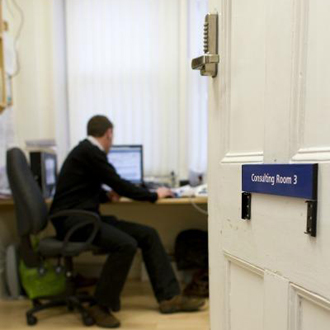Sickness payment contract deal to reduce GP practices’ need for locum insurance

Making sickness payments non-discretionary will remove the necessity for locum insurance for a large number of GP practices, the GPC has said.
The new contract makes sickness cover reimbursement a practice entitlement, as opposed to the discretionary payment it currently is.
It also removes a number of barriers to practices claiming reimbursement, including a qualifying criteria based on list size – which only allowed practices to claim reimbursement when the remaining GPs were left with more than 2,600 patients each.
The agreement, which GPC chair Dr Chaand Nagpaul hailed as ’one of the most important gains’ in the entire contract deal, also removes the requirement for the money to be spent on locums, which means practices will be able to use their own GPs to cover absences.
Finally, there will be no ‘medical exclusion criteria’, so practices will no longer require insurance to pay for the use of locums.
No other aspects will change compared to the current scheme, under which practices can be reimbursed to cover GP sickness – including salaried doctors – for up to a year (first six months in full, then up to half the amounts), said the GPC.
The deal has also secured improvements to maternity payments for practices, which will no longer be on a pro-rata basis. Practices will now be able to submit an invoice and either the full amount or maximum payable will be reimbursed.
In a letter to GPs, Dr Nagpaul said: ’Practices are currently at considerable financial risk of paying for sickness absence of GPs, due to discretionary reimbursement, outdated list-size criteria and the need for cover to be provided by an external locum.
‘We have secured that sickness cover reimbursement will no longer be a discretionary payment, but a practice entitlement. The qualifying criteria based on list size, which often prevents a practice from being able to claim a payment to cover locum costs, has been removed.
The letter said these changes will ‘reduce practice locum insurance cover expenses, and enable practices to offer better sickness absence terms for salaried GPs’.
But speaking to Pulse, Dr Nagpaul said the deal would mean many practices would no longer need locum insurance cover at all.
He said: ’Most practices are incurring thousands of pounds on locum insurance to cover for sickness, which on the basis of this agreement will – for large number of GPs – no longer be needed, or they can significantly reduce their insurance cover.’
Dr Nagpaul added: ’For me, when the 2004 contract was negotiated… that was one of the biggest omissions, which placed the entire risk of GP sickness onto practices. Potentially having to pay for a salaried GP full time for six months is a major risk and many practices have not been able to offer their salaried GPs that kind of cover…
’I am pleased we have managed to put that wrong right. This is good for salaried GPs, who can have better terms, and for practices to have that security.’
Pulse July survey
Take our July 2025 survey to potentially win £1.000 worth of tokens











